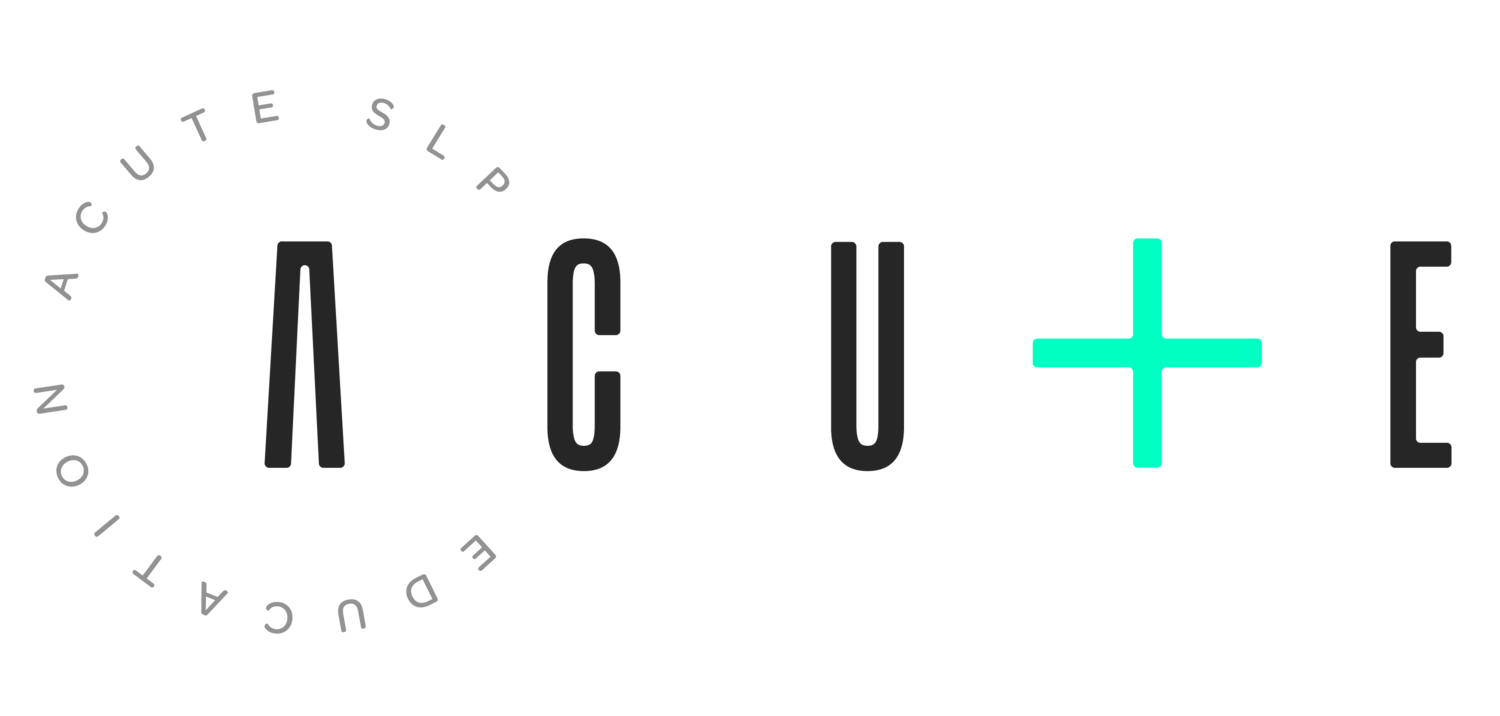ADDITIONAL COURSE INFORMATION
Course Complexity:
Intermediate
Peer Reviewers:
Internist – Dr. Ardavan Mashhadian, DO
Learner Objectives:
Describe the value of the medical record review in developing dysphagia hypotheses and diagnostic plans
Identify “Assessment” statements of dysphagia reports that employ a holistic patient view
Describe the process for dysphagia diagnostic report writing, utilizing an organized structure as a cognitive framework for clinical reasoning
Course Agenda:
0-8 minutes (8 min duration): Introduction & Course Book
8-19 minutes (11 min duration): Value of Clinical Writing
19-41 minutes (22 min duration): Pre-Test Report Writing
41-132 minutes (91 min duration): Report Writing for Clinical Swallow Evaluations
132-174 minutes (42 min duration): Clinical Swallow Evaluation Writing Workshop
174-220 minutes (46 min duration): Report Writing for Videofluoroscopic Swallow Studies
220-257 minutes (37 min duration): Videofluoroscopic Swallow Study Writing Workshop
257-283 minutes (26 min duration): Report Writing for Flexible Endoscopic Evaluations of Swallowing
283-316 minutes (33 min duration): Flexible Endoscopic Evaluation of Swallowing Writing Workshop
316-336 minutes (20 min duration): Post-Test Report Writing
Total duration: 336 minutes (5.6 hours)
Speaker Information and Disclosures:
Kelsey Day, MS, CCC-SLP, BCS-S is an acute care Speech-Language Pathologist (SLP) and Board-Certified Specialist in Swallowing and Swallowing Disorders who specializes in dysphagia management for the medically complex, critically ill, and tracheostomy dependent populations. She currently serves as the Lead SLP in a trauma and stroke center in downtown Los Angeles, where she supervises a team of nine acute care SLPs. Kelsey prides herself on fostering strong physician relationships and investing in new program development, which facilitate state-of-the-art care for her patients. She demonstrates her commitment to the education of medical SLPs through her mentorship and supervision of graduate student clinicians and Clinical Fellows in the acute care setting. She is a guest lecturer at several graduate-level SLP programs, visiting faculty at university hospital systems, and invited international keynote speaker.
Financial Disclosures:
Salary from California Hospital Medical Center
Speaker fees from prior live presentations of “Clinical Writing of Dysphagia Diagnostics” via Mobile Dysphagia Diagnostics
Ownership of Acute SLP Education, LLC, which operates this website and collects tuitions
Non-Financial Disclosures:
Invited guest on Swallow Your Pride podcast to discuss clinical writing
Invited guest on the Speech Uncensored podcast to discuss clinical writing
FAQs:
Can I earn continuing education credit for this webinar?
Yes, this course is offered for Professional Development Hours (PDHs) – formerly known as Certification Maintenance Hours (CMHs).
ASHA Certification Maintenance Standards require that all certificate holders (CCC-SLP) must accumulate 30 professional development hours (PDHs) [formerly certification maintenance hours (CMHs)] during each 3-year certification maintenance interval in order to maintain their ASHA Certificates of Clinical Competence (CCC).
For additional information regarding PDHs and requirements for professional development during your 3-year maintenance interval for ASHA, please visit https://www.asha.org/certification/factdef/ and see the below cited references:
American Speech-Language-Hearing Association. (n.d.). Professional development activities. Professional Development Activities. Retrieved March 2, 2022, from https://www.asha.org/certification/factdef/
American Speech-Language-Hearing Association. (n.d.). Professional Development for Certification. for Certification. Retrieved March 2, 2022, from https://www.asha.org/certification/profdevelopment/
American Speech-Language-Hearing Association. (n.d.). Requirements for maintaining your asha certification. Requirements for Maintaining Your ASHA Certification. Retrieved March 2, 2022, from https://www.asha.org/certification/maintain-ccc/
For whom is this webinar appropriate?
This course is appropriate for any medical Speech-Language Pathologist practicing in the area of dysphagia. Prior experience with videofluoroscopy and endoscopy is not necessary. This course is also appropriate for current graduate students in Speech-Language Pathology who have completed introductory coursework in dysphagia and neuroanatomy/neurophysiology.


